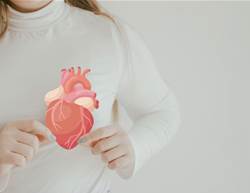Researchers examined the habitual coffee consumption of 390,435 people. They found that people subconsciously self-regulate safe levels of caffeine, based on how high their blood sugar is, and suggest this is likely to be a result of a genetic mechanism. The findings reveal that individuals who drink lots of coffee are more likely to be genetically tolerant of caffeine, compared to those who drink very little.
People with high blood pressure, angina and arrythmia were more likely to drink less coffee, opt for decaffeinated coffee or avoid it entirely, compared to those without these symptoms. Non-coffee drinkers were also more likely to be prone to adverse effects of caffeine, and more susceptible to high blood pressure.
Professor Hypponen, lead researcher at the Australian Centre of Precision Health, says that our daily coffee consumption is likely to be an indicator of our heart health. “Whether we drink a lot of coffee, a little, or avoid caffeine altogether, this study shows that genetics are guiding our decisions to protect our cardio health”.
She concludes, “If your body is telling you not to drink that extra cup of coffee, there’s likely a reason why. Listen to your body, it’s more in tune with your health than you may think.”
For more recipes and articles by Prevention on beauty and wellbeing, sign up to our weekly newsletter.










